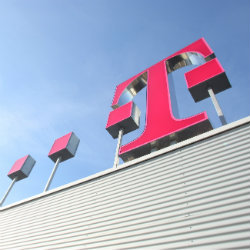Eurobites: T-Mobile Netherlands goes Dutch on fiber venture
Also in today's EMEA regional roundup: Lutz Schüler named as boss of post-merger Virgin Media/O2 entity; Ericsson does 5G in Malta; UK sets up new regulatory unit to tame tech titans.

Also in today's EMEA regional roundup: Lutz Schüler named as boss of post-merger Virgin Media/O2 entity; Ericsson does 5G in Malta; UK sets up new regulatory unit to tame tech titans.
T-Mobile Netherlands is hoping to reach 1 million Dutch households with fiber within five years through a partnership with Open Dutch Fibre, which is itself a joint venture between KKR Infrastructure and Deutsche Telecom Capital Partners. T-Mobile is pumping at least €700 million (US$832 million) into the project, according to Reuters. In the Netherlands, T-Mobile competes against incumbent KPN and VodafoneZiggo. KKR Infrastructure is becoming a significant player in the European fiber scene, having already secured a major stake in FiberCop, Italy's recently established last-mile network grid. (See FiberCop is go after KKR and Fastweb firm up stakes.)
Lutz Schüler, the current CEO of Virgin Media, has been officially earmarked as CEO of the proposed joint venture between Telefónica UK (O2) and Virgin Media, winning out over Mark Evans, who has been CEO at O2 for the last five years. Prior to his time at Virgin Media, Schüler spent seven years as CEO of Unitymedia, Liberty Global's German operation. Patricia Cobian, currently chief financial officer at O2, will retain that position at the merged entity. Of course, this all assumes that the Virgin/O2 deal will pass all the relevant regulatory scrutiny... (See Telefónica, Liberty Global in talks to combine UK ops – report.)
Ericsson has landed a 5G RAN deal in Malta, with operator Epic. The vendor will be bringing its usual panoply of RAN-related goodies to the party, including spectrum-sharing and Massive MIMO technology. According to Ericsson, the deal brings its worldwide total of commercial 5G agreements and contracts to 135 – though only 77 of these have been publicly announced.
The UK government has set up a new unit within the Competition and Markets Authority specifically charged with keeping a watchful eye on tech heavyweights and how they engage with their content providers and advertisers. From its description, the Digital Markets Unit (DMU) sounds like it will attempt to do what the European Union is already doing on a pan-European basis, but in a plucky-Britain-on-its-own-against-the-world kind of way. Good luck with that... (See EU readies sweeping new tech 'rules of the road'.)
Deutsche Telekom is targeting startups and small businesses with a new, limited-period IoT tariff, LPWA Start, which offers a minimum of five and a maximum of ten pre-activated SIM cards with which companies can create their own "IoT landscape," using them in sensors, trackers and other devices.
Nokia's latest sustainability report reveals, among other things, that it has exceeded its target of enabling 6.5 billion wireless subscriptions two years ahead of schedule.
EE, the mobile arm of UK incumbent operator BT, is planning to extend the hours of some of its stores when they re-open on April 12 as part of the UK's pandemic lockdown easing. EE is anticipating a 50% "uptick" in demand for face-to-face tech support, as customers finally get human help with their phone problems.
China's ZTE has implemented what it says is Africa's first live 3G/4G/5G Tri-RAT dynamic spectrum sharing solution, after carrying out a trial on 2.1GHz spectrum within 15MHz bandwidth.
— Paul Rainford, Assistant Editor, Europe, Light Reading
Read more about:
EuropeAbout the Author(s)
You May Also Like




.jpg?width=300&auto=webp&quality=80&disable=upscale)







